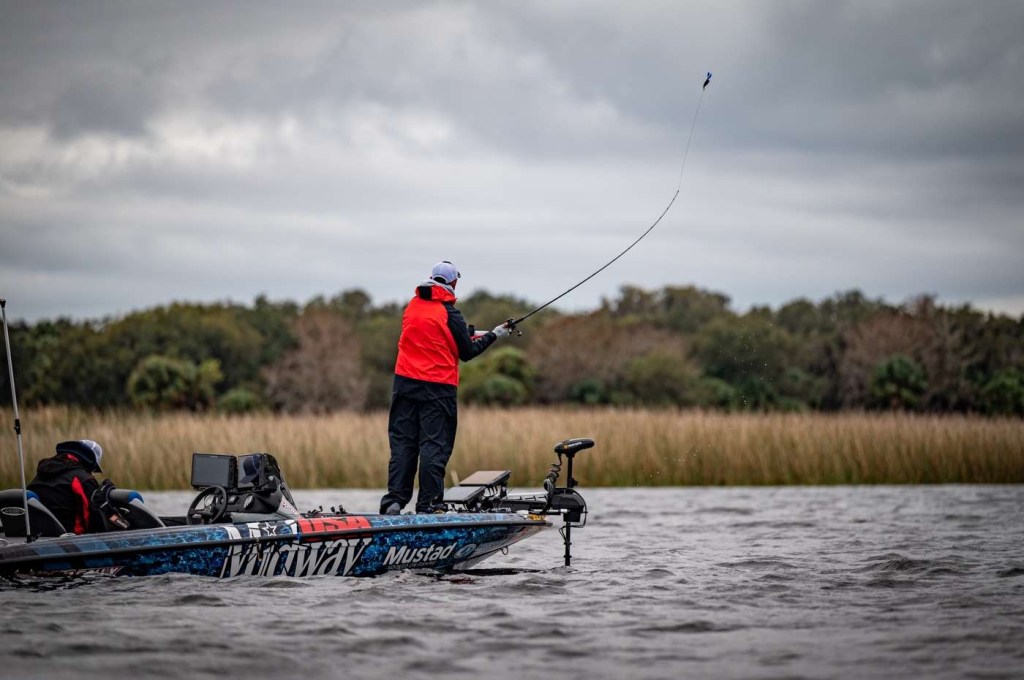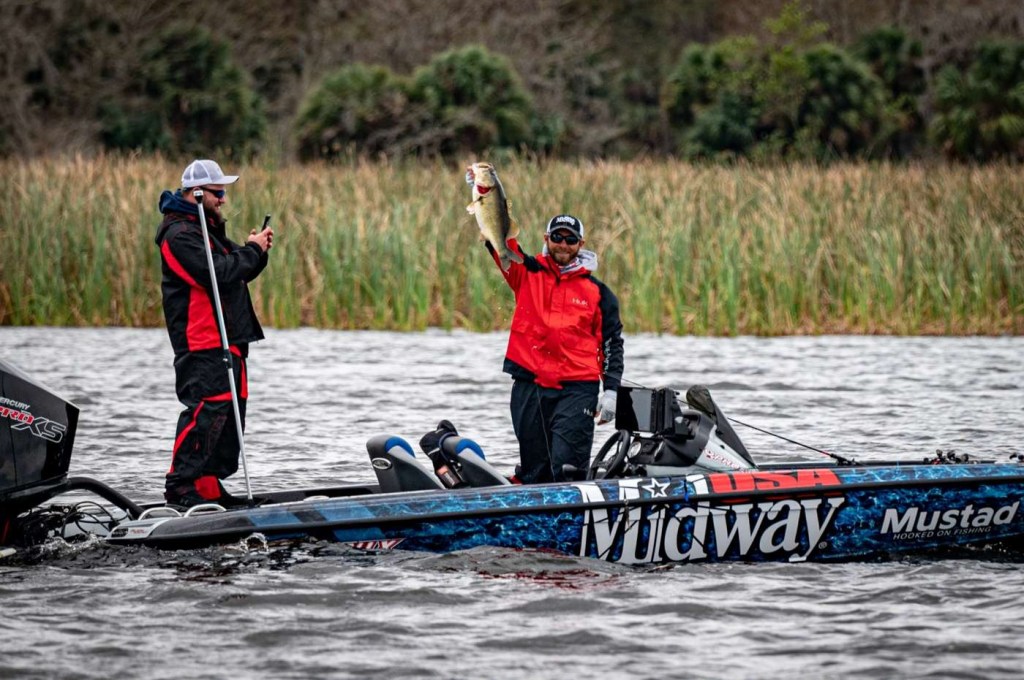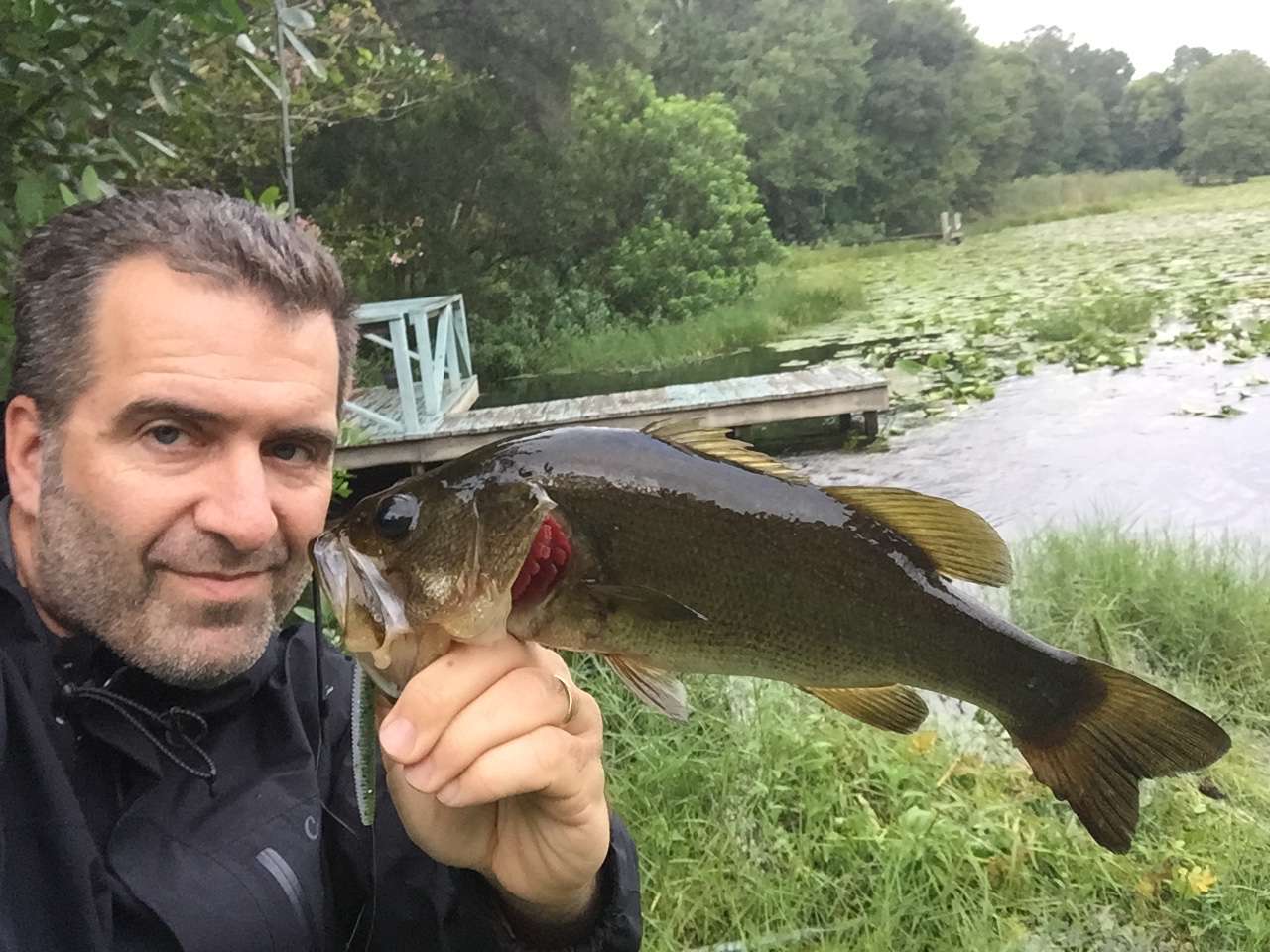
While Bassmaster Elite pros strive for excellence throughout each event, the right combination of variables occasionally align to create the opportunity for superlative performance. Success hinges on seizing the moment, rising to the occasion and turning in a truly memorable performance. Here’s an example from Elite veteran Brandon Lester.
Event: 2022 St. Croix Bassmaster Southern Open on the Kissimmee Chain of Lakes.
Scenario: The first week of February brought the usual early season complexion with two days of pleasantly stable weather, followed by a major weekend change. During practice, Lester knew he’d have favorable conditions for at least a couple days, so what he saw bespoke the potential he was hoping to find.
“Just about every year of my career, up until that point, (B.A.S.S.) has started in Florida, so I’ve learned to recognize that if you get in an area with beds and you’re coming up on a warming trend, there is definitely a wave of fish that are coming,” Lester said. “In Florida, especially, if you see a bed that is bright white, that’s an active bed. There’s been a fish on that bed within the past 24 to 48 hours, for sure.
“The water down there has so much silt and (particulates) in it that the beds will get covered up quickly if they’re inactive. So, if that bed is cleaned off, there’s been (recent activity).”
All three days, the pro from Fayetteville, Tenn., departed the tournament’s takeoff site at the north end of Lake Toho, ran downlake and locked through to Cypress Lake. He’d also pass through Lake Hatchineha and run down to spend a little time in Lake Kissimmee, but Cypress produced most of his weight and dominated his final round work.

Flush with healthy hydrilla — the most he’d seen in several years — Cypress also presented a promising scenario. With clarity high and the water relatively calm, he could see dozens of beds everywhere he went.
“When I found those clean, bright beds in Cypress (during practice), I wasn’t seeing a lot of fish, but I knew there were some fish starting to move in,” Lester said. “I knew there were some males starting to sweep off those beds. And with warmer weather coming, I definitely knew I would be going back to that area during the tournament.”
The first two days, Lester fished the north shore of Cypress Lake and caught his fish on a 5-inch Junebug color Gambler Fat Ace (soft stick bait) rigged on a 3/0 Mustad Grip Pin Big Bite hook with a 3/16-ounce Mustad Tungsten weight. Sticking with this routine, Lester placed 13th on Day 1 with 14-13, then added 18-1 a day later and moved into second place.
“The first two days were really bright and sunny and I could really see the beds,” Lester said. “Even though I was bed fishing, I couldn’t see any of those fish I was catching; I was just making long pitches to the bright spots. I love doing that.
“Certainly, if I had seen a fish, I would have poled down and fished for it. But these beds were a little deeper, maybe 3-4 feet, and the fish were kinda hanging off the edge. So all of the fish I caught the first two days, I just pitched to the bright spot, leave my bait in there for a few seconds and they’d eat it.”
The decision: Lester said he would’ve been fine with a third day of his blind bed fishing, but Day 3 shuffled the meteorological deck. An approaching cold front brought cloudy skies, light afternoon rain and cooling temperatures. That’s enough to alter any visual game plan, but the biggest element requiring a recalculation was the 10- to 15-mph north wind.
“The night of the tournament’s second day, the wind changed and blew mud all down that northwest side of Cypress Lake,” Lester said. “The chances of me seeing those beds were just done. When I got out there, it was muddy and churned up, so I knew I had to do something.”
Trusting his gut, Lester made a wholesale change. Not an easy call when you’ve caught ‘em good a certain way for two days, but realizing he’d be trying to force a square peg into a round hole, Lester put away the stick worm rods and made a major relocation.

Game changer: Lester’s decision took him to Cypress Lake’s southeast shore, where he replaced the slow and patient bed fish deal with a weather-appropriate reaction bait.
“I ran over to the opposite side of the lake where the clean water was, where it was protected from the wind,” Lester said. “I started going down the grass line throwing a 3/8-ounce Evergreen JackHammer ChatterBait in the golden shiner color with a 3.3-inch Keitech Swing Impact Fat trailer in Tennessee shad.
“With the wind and clouds, that’s what the conditions called for. I found about a 300-yard stretch of hydrilla in 3 to 4 feet that had an active group of fish. That’s where I caught every fish I weighed the last day.”
As Lester recalls, the scattered hydrilla offered ideal staging areas, but the key detail that got him dialed in to the winning potential was simply the food.
“There was some bait in the area, and that’s kinda what keyed me in when I got over there,” he said. “I hadn’t even fished on that side of the lake, but I saw a fish blow up on a shiner. I actually saw the shiner jump out of the water, and I saw the fish come up and grab it.
“I threw my ChatterBait over there and caught a fish. I threw right back out there and caught another small keeper. I just stayed on that stretch going back and forth all day.”
Lester’s move would yield a final-round limit of 18-4. Anchoring that bag with a 7- and a 5-pounder, he tallied 51-2 and notched his first Bassmaster victory.
Takeaway: “I think the biggest thing was making that adjustment on Day 3,” Lester said. “That was the proudest moment of my career.
“I knew if I was going to win that tournament, I had to find a new group of fish and that’s what I did. I hunkered in and got the job done. I was pretty proud of that.”





